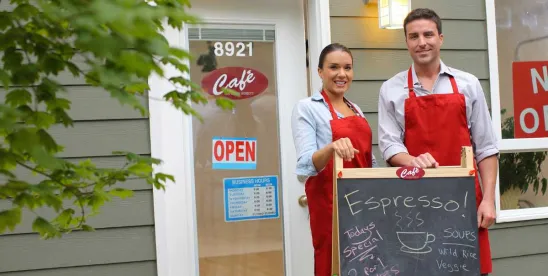In a long-awaited decision, the Department of Labor (DOL) regulation setting strict limits on the amount of time that tipped employees can spend performing work that does not directly generate tips has been struck down by the U.S. Court of Appeals for the Fifth Circuit. Restaurant Law Center v. U.S. Department of Labor, No. 23-50562 (Aug. 23, 2024). The appeals court vacated the rule, voiding the provision nationwide.
The decision will be welcome news to hospitality employers who have long struggled with implementing the DOL’s final rule that disallowed the tip credit if employees spent too much time performing duties related to their so-called tip-producing duties (such as a server who also wipes tables or toasts bread).
Tip Credit
The Fair Labor Standards Act (FLSA) permits tipped employees to receive $2.13 per hour in a direct wage, so long as the combination of their direct wage and tips equals at least the $7.25 hourly minimum wage. (Many states have laws that require higher tipped rates.)
In 2021, the DOL issued a final rule that codified earlier DOL guidance, often referred to as the “80/20” or “20%” rule. That rule, which first appeared in the DOL’s field handbook in 1988, limits the amount of time an employee may spend on work that is not tip-producing to 20% of the employee’s hours in a given workweek, while still allowing the employer to take the tip credit. The final rule distinguished between tip-producing work, such as waiting tables, and work that directly supports tip-producing work, such as bussing tables. The final rule also imposed a new “30-minute” restriction, limiting to 30 minutes the amount of continuous time during a shift that a tipped employee may spend performing tasks that are “directly supporting” tipped work.
Long-Running Legal Challenge
Restaurant industry groups challenged the final rule before it took effect, but a federal court in Texas denied their bid for injunctive relief barring the DOL from enforcing it. A Fifth Circuit panel reviewed that decision and remanded the case to the district court to reconsider. (See Fifth Circuit Reverses Denial of Preliminary Injunction to Invalidate DOL Tipped Dual Jobs Rule.) Analyzing the rule under the Chevron standard of deference to agency rules, which was still in effect at the time, the district court granted summary judgment in favor of the DOL and upheld the rule. (See Restaurant Associations’ Effort to Invalidate DOL’s ‘Dual Jobs’ Rule Rejected by Texas Federal Court.)
Invalidated on Appeal
In its latest decision, the Fifth Circuit held the 2021 tip rule is contrary to law and arbitrary and capricious because it draws an impermissible, arbitrary line between tip-producing and tip-supporting work, conflicting with the statutory scheme that Congress established under the FLSA. The FLSA allows the tip credit for any employee “engaged in” an “occupation … that customarily and regularly receives more than $30 a month in tips,” the appeals court observed. “The FLSA does not ask whether duties composing that given occupation are themselves each individually tip producing.”
Because the final rule “replaces the Congressionally chosen touchstone of the tip-credit analysis—the occupation—with one of DOL’s making—the timesheet,” it is inconsistent with the text of the FLSA and is invalid.
Takeaways
The appellate court’s decision vacating the 2021 tip rule is an important win for restaurant and hospitality industry employers who have been required to comply with seemingly arbitrary distinctions between “tip-producing” and “tip-supporting” work. DOL may seek en banc review before the Fifth Circuit or seek the right to appeal to the U.S. Supreme Court. Given the Supreme Court’s recent decisions on deference to agencies, DOL may find the Supreme Court an even more inhospitable forum.
Much will depend on the presidential election as well. If Donald Trump wins, DOL would likely either take no further action or reimplement the regulation the Trump DOL had proposed, which the Fifth Circuit suggested might be valid. That rule would have allowed use of the tip credit so long as duties were related to the tipped work and performed reasonably contemporaneously with it. If Kamala Harris wins, DOL might issue a new rule defining the duties of workers who receive tips to narrow the use of the exemption or seek to change the rule through legislation.
Both Trump and Harris have endorsed eliminating taxes on tips and perhaps legislating implementing that change would include an amendment to the FLSA.
Employers should also assess state-law requirements for taking a tip credit against the minimum wage for employees who “customarily and regularly” earn tips, including a prohibition on use of the tip credit in certain states.






 />i
/>i

